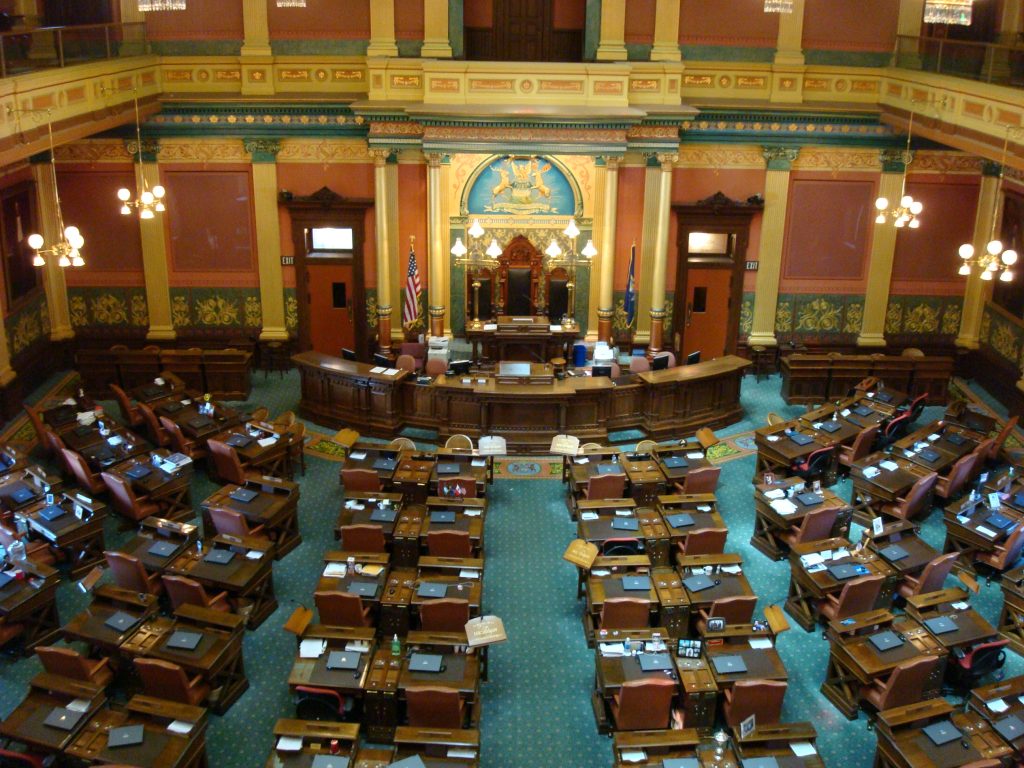Is the Michigan Legislature Broken?
Brian Dickerson talks about petitions, districting, and how Michiganders are politically disillusioned.

Stephen Henderson talks with Free Press columnist Brian Dickerson about a provision that allows a small minority of Michigan voters to enact laws that the government cannot veto. Dickerson wrote about this for the Free Press, and calls it “the 3% solution to the problem of democratic rule”. They discuss the role and impact of this provision, as well as voter disengagement and districting.
- Intended use: Dickerson says that this provision was added a century ago, when legislators worried that Michigan politics were too controlled by special interests, and wanted to add a way for voters to bypass this influence. He says that when it was made, legislators did not anticipate that Michigan’s voter turnout would ever be as low as it is today.
- Petition corruption: Dickerson says that because the number of signatures that is required is based on voter turnout, the minimum required today is 250,000 signatures. He says that groups can pay companies or people to collect signatures, and each signature costs $2. This means that it would cost half a million dollars to bring a petition before the legislature. Dickerson says that he has heard that petitioners to end the prevailing wage in construction in Michigan have been soliciting signatures by saying that they are working for transparency in campaign financing, an unrelated issue.
- Low voter turnout: Dickerson says that Michigan residents are disengaged from state politics. He talks about hearing from the “angry non-voter”, who feels that they have no say in politics.
- Runaway legislature: Stephen and Dickerson talk about the role of district boundaries and of legislation that disregards popular opinion. They use the new law exempting religious adoption agencies from adopting to LGBT parents, as well as state policy on marijuana, as examples of policies that do not reflect popular opinion.
- Primaries: Dickerson says that the district he lives in is drawn such that it is consistently Republican despite politically mixed voters, so he feels that his best way to have a say in state politics is to vote in his local Republican primaries. He says that he is disturbed to find that many non-voters are able to provide rational explanations for why they do not vote, based on how their districts are drawn or on how legislators ignore their interests.
Click the audio link above to hear the full conversation.
